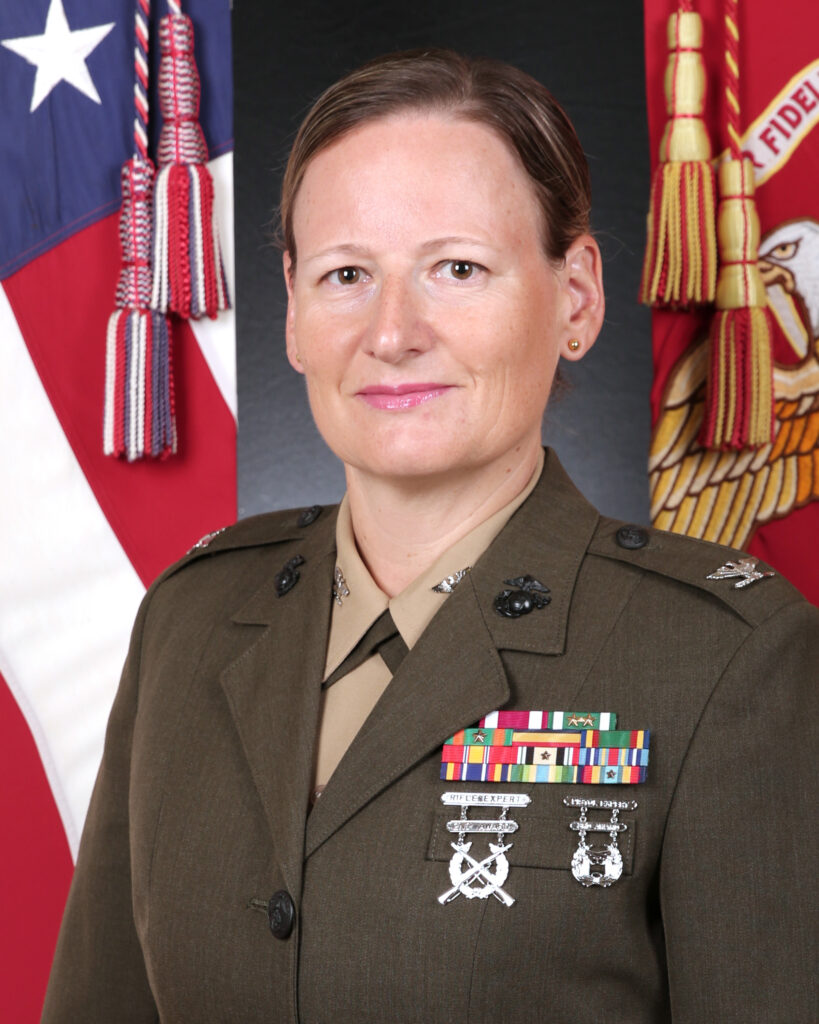2017
Originally published in The Citadel, 2017
When Lt. Col. Petra Lovetinska Seipel, ’00, returned to her alma mater in March [2017] to speak at the 10th annual Principled Leadership Symposium, her visit coincided with a personally significant commemoration. “It’s an honor to be back, especially today as we celebrate 20 years of women matriculating at The Citadel,” said Lovetinska, who was one of the first four women to matriculate into the South Carolina Corps of Cadets and who went on to become The Citadel’s first four-year female graduate and the earn a commission in the military.
As the symposium’s opening speaker, Lovetinska highlighted this year’s theme of resilience in a changing world while recollecting her own experiences in character building at The Citadel. “Every time you go through an adverse experience, it will help you to deal with something later on in life,” said Lovetinska. “The experiences can be small, but they build up over time because you don’t build resilience overnight. It’s been taking me 20-some years to get where I am today, but it was one experience at a time, and combined, they can do wonders for you.”
In her speech, Lovetinska focused on the current nationwide debate about whether there is a lack of student resilience on today’s college campuses. “I can’t even imagine how some of these students survive daily if they cannot deal with the simple aspects of life,” said Lovetinska. “What you know, what you experience, what you can do for yourself—nobody can take that away from you. So, being able to rely on yourself and your social network is really important.”
Pointing to the trend of some college students being unable to cope with bad grades, Lovetinska emphasized that at The Citadel, she had to take responsibility for her own academic performance. “You either studied, or you did not,” said Lovetinska. “I went to the writing center and got a tutor. And I lucked out and actually ended up with a Marine as my tutor, and he was not only the most phenomenal English tutor, but he was also a mentor for me.”
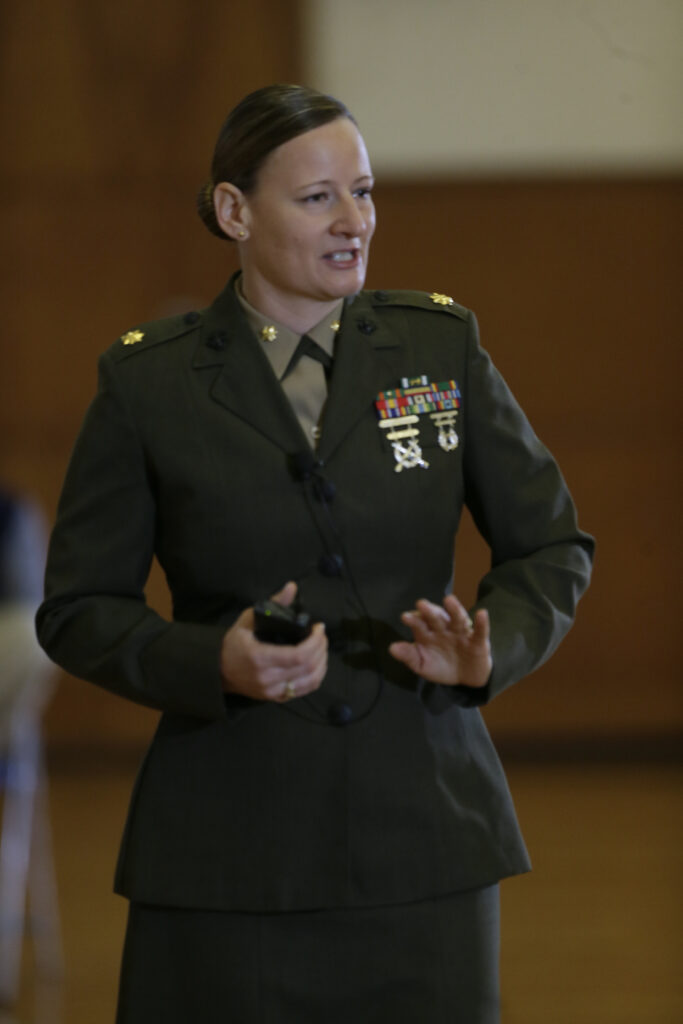
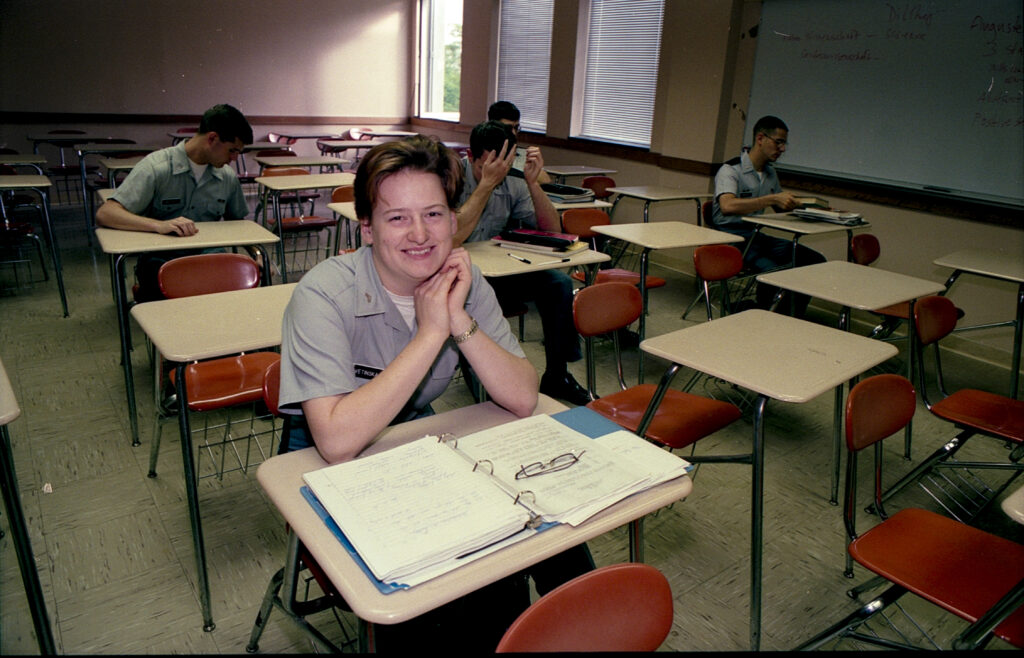
For Lovetinska, the network of support cadets find at The Citadel is vital. “Our students are able to live in adversity and are able to manage both the cadet life and getting those grades and keeping them up,” she said. “Resilient people have a good social network.”
According to Lovetinska, becoming resilient requires reaching out for support when needed. “I think coping is the other part of resilience that you have to build up,” said Lovetinska. “Part of building your resilience is being able to talk about it, being able to tell somebody else while getting feedback. Because, at the end of the day, we can’t do all of this stuff on our own—we need that social network.”
Lovetinska stressed that becoming resilient also means taking risks and preparing for hardship. “Part of building resilience is knowing what could happen and how do I react,” said Lovetinska. “We put so much pressure on these young kids to succeed because we just talk about failure as a bad thing. But I think we need to step back and look at failure as a teaching opportunity and as a learning moment. Because if you don’t ever fail, how are you going to learn to deal with crisis?”
Addressing cadets, Lovetinska emphasized the role The Citadel experience plays in building resilience in the face of failure. “You are ahead of your peers at other colleges because you decided to take that road less traveled,” Lovetinska noted. “You have walked through Lesesne Gate knowing that you should expect some adversity in your life. If you come to The Citadel thinking that it’s going to be easy, it’s not. And I’m sure there have been times you have failed.”
One particularly trying experience Lovetinska recalled was the grueling PT run held after every weekly parade. “On Fridays, there was no meal formation, so the upperclassmen could run us until literally every single one of us fell out,” said Lovetinska. “We were all going to fail at some point, and I remember just coming back from parade, and you would march over the field and come in through one of the sallyports, and I would feel sweat pouring down my back, and I’m just like, ‘Oh my God I can’t do this.’ And you know what—I managed.”
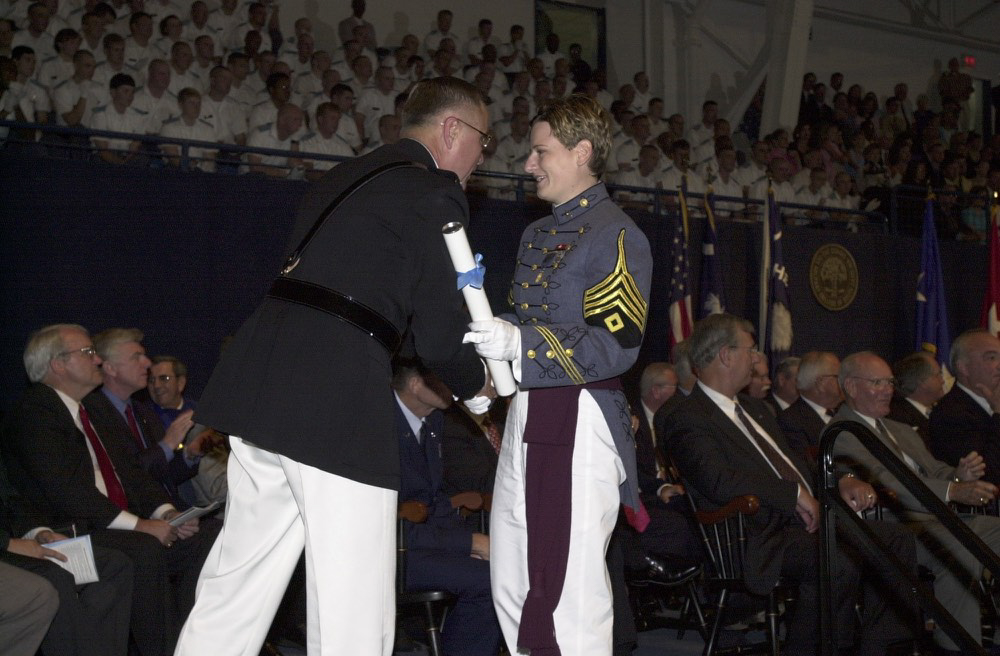
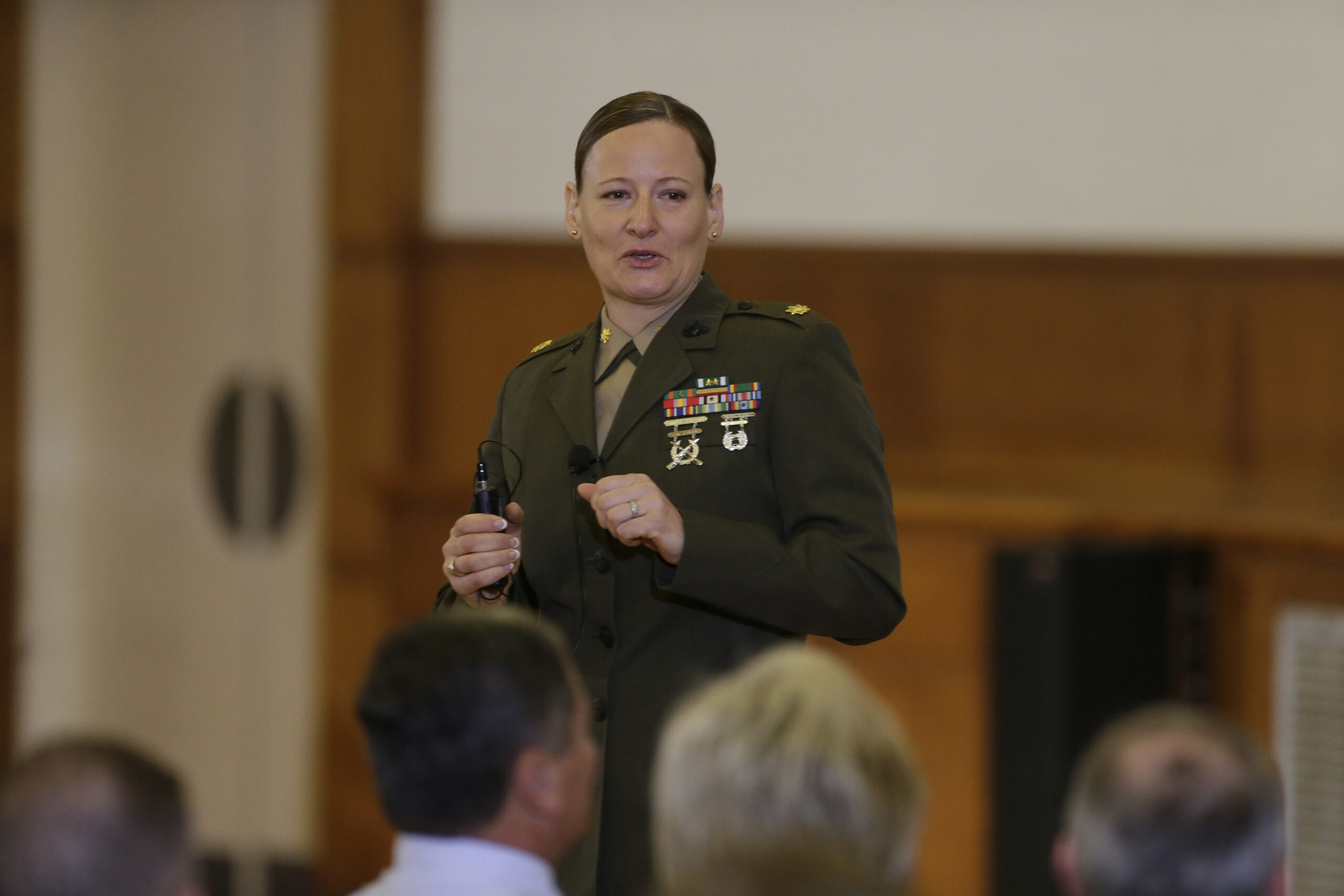
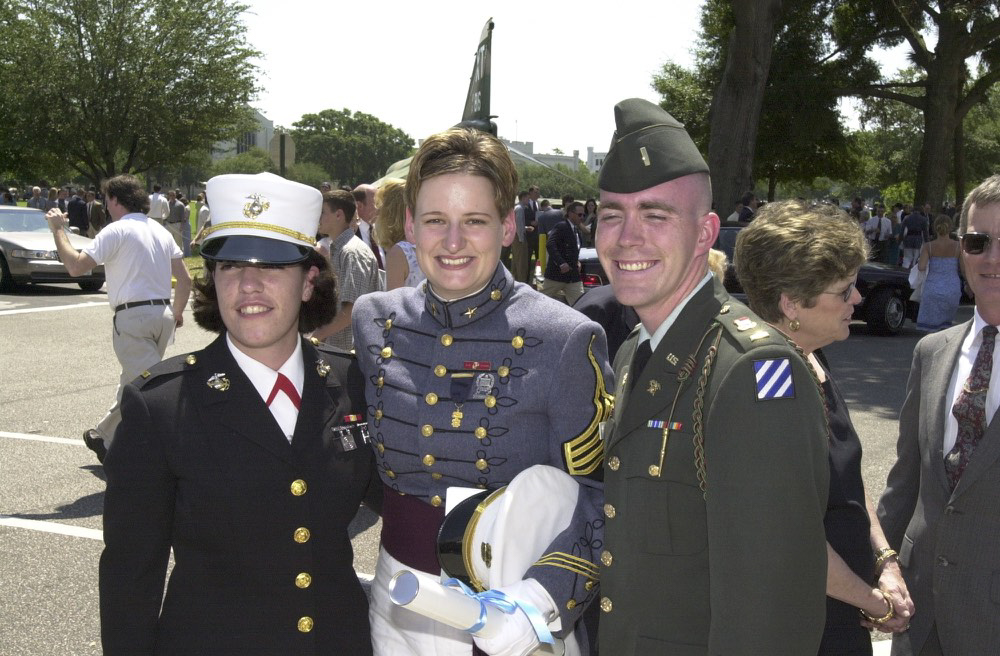
The lessons in resilience Lovetinska learned during those long Friday runs prepared her for challenges later in life. “It worked really well for me because fast forward, the Marine Corps decides that ‘hey we’re going to have our women do pull-ups,’ and I’m thinking I’m going to be out of a job,” said Lovetinska. “And turns out, all you need is a little bit of determination, and you need some friends to help you along, and the next thing I know, I did 10 pull-ups and thought, me? But you have to have some of the experience coming up to it.”
For Lovetinska, building resilience is one of the most valuable aspects of a Citadel education. “You have to take those risks, you have to put yourself out there, to be able to learn what you’re made of,” said Lovetinska. “I think that is one of the things that The Citadel taught me.”
Col. Petra Lovetinska Seipel continues to serve in the U.S. Marine Corps. She is currently stationed in Okinawa, Japan, where she serves as the assistant chief of staff for logistics for the 3D Marine Expeditionary Brigade.
